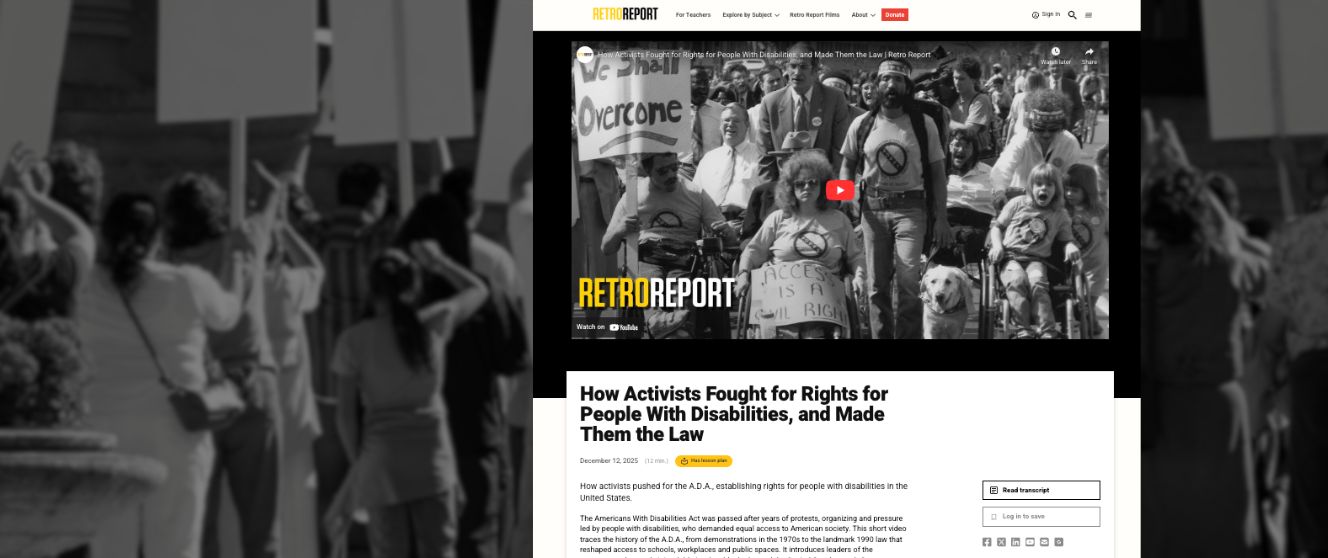
FOR IMMEDIATE RELEASE:
Wednesday, June 10, 2020
MEDIA CONTACTS:
Vanessa Barrington, 510-256-1200, vbarrington@justiceinaging.org
Communications Director, Justice in Aging
Melody Pomraning, 916-504-5938, Melody.Pomraning@disabilityrightsca.org
Communications Director, Disability Rights California
Lawrence Carter-Long, 510-644-2555 ext 5256, LCarterLong@dredf.org
Communications Director, Disability Rights Education & Defense Fund (DREDF)
Ragen Chastain, 512-632-6080, Ragen@SizedForSuccess.com
Communications Director, #NoBodyIsDisposable Coalition
Brandie Sendziak, 628-231-2287, Brandie@ilrcsf.org
Supervising Attorney, Independent Living Resource Center San Francisco
Jessica Lehman, 415-546-1333,
Executive Director, Senior & Disability Action
On June 9, 2020, the California Department of Public Health (CDPH) released new “Crisis Care Guidelines” for COVID-19 that affirm that health care providers may not discriminate based on the age or disability of patients when deciding how to allocate scarce resources. The guidelines are intended for use by private and public hospitals and county health entities in situations where there are shortages in staff and equipment needed to treat critically ill COVID patients.
The guidelines direct that decisions about “healthcare and the allocation of scarce resources, cannot be based on age, race, disability (including weight-related disabilities and chronic medical conditions), gender, sexual orientation, gender identity, ethnicity, ability to pay, weight/size, socioeconomic status, insurance status, perceived self-worth, perceived quality of life, immigration status, incarceration status, homelessness, or past or future use of resources.”
“During this crisis it is critical that we protect access to care for those communities made most vulnerable to the health impacts of COVID-19 — people with disabilities, people of color, and older adults,” said Andrew Imparato, Executive Director of Disability Rights California, the state’s federally designated protection and advocacy agency. “Disabled people need to know that they will not face discrimination if they need to go to the hospital. The new guidelines set a high standard of inclusion and equality. ”
“We are pleased that California rejected ageist, ableist, and racist approaches for triaging care that have emerged from other states during this crisis,” said Kevin Prindiville, Executive Director of Justice in Aging. “Instead, California has taken an approach that values the lives and rights of older adults and people with disabilities from diverse backgrounds.”
The new guidelines are a significant improvement over an initial version the state released in April. California’s previous draft guidelines published April 19, 2020 adopted a point system that gave preferential use of scarce resources to younger folks, people assumed to have longer life expectancies, and individuals without certain pre-existing medical conditions.
“Including explicit protections for people based on race, weight, size, and socioeconomic status, along with age and disability, is an important step towards ensuring that all Californians — especially those who already experience oppression — don’t face bias in COVID-19 medical care. It’s fantastic that the State is partnering with higher weight people to create a framework of equal access to crisis healthcare and close a legal loophole that results in race-related discrimination,” said Sondra Solovay, founder of Fat Legal Advocacy, Rights, & Education and part of the #NoBodyIsDisposable Coalition.
“When we read the first version of the guidelines — which endorsed discrimination on the basis of age and disability — we were upset and angry.” said Claudia Center, Legal Director for Disability Rights Education and Defense Fund (DREDF). “People with disabilities and older adults would have been given a lower priority for life-saving care. And the point system would have penalized people with certain medical conditions, including conditions that are much more prevalent among higher weight people and people of color.”
More than 60 community and advocacy organizations representing millions of Californians opposed the “draft” policy because it discriminated against people of color, disabled people, higher weight people, and older adults. In response, the Governor’s office and leadership at the Department of Health and Human Services promised to revise their recommendations, and consulted with medical experts as well as legal advocates from the aging and disability communities. Organizations providing guidance to the state included the Disability Rights Education and Defense Fund, Justice in Aging, Disability Rights California, Independent Living Resource Center San Francisco, and #NoBodyIsDisposable Coalition.
“We are grateful to DHHS for recognizing the original guidelines were not consistent with the laws, goals, and values of our state — and for making necessary changes. The governor’s ‘California for All’ platform must include all Californians,” said Brandie Sendziak, Supervising Attorney with Independent Living Resource Center San Francisco.
Disability and aging advocacy organizations have prepared a short summary of the new guidelines. The organizations will also issue additional “Know Your Rights” materials that people with disabilities and older adults and their families can use to ensure they get the care they need as the COVID-19 pandemic continues.
/ / / / /

